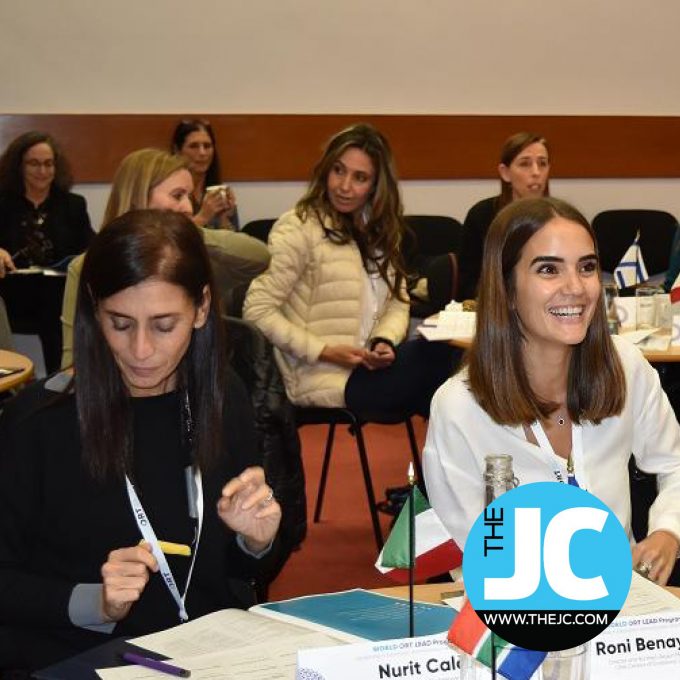see original article here
Teachers may be taught how to lead children when they qualify – but not adults.
In a London seminar room earlier this month, some 20 teachers from across Jewish schools across the world learned to eat frogs.
Not literally (the amphibians aren’t kosher, anyway). The phrase is taken from the title of Brian Tracy’s self-help bestseller, Eat That Frog, which is about how not to put off difficult decisions.
Take the head of a department in school who has to find out why a classroom teacher is not doing what they are supposed to.
“When the conversation gets difficult, there’s a natural human tendency to pull back and withdraw from it,” explained Graham Dring, a leadership training consultant from University College London’s Institute of Education. “We call that a frog.”
For the third year running, Mr Dring and his UCL colleague Christine Young have led an intensive leadership programme for World Ort, the London-based network founded in 1880 which now encompasses around 70 schools.
Its London headquarters puts it within convenient reach of institutions from Latin America, Europe, Israel and South Africa. And by happy coincidence, it has one of the world’s leading educational institutes, the IoE, on its doorstep.
World Ort’s Lead programme (Leadership in Education, Administration and Development) is geared towards towards “middle leaders — people who have just been promoted to their first additional responsibilities outside of classroom teacher,” said its head of education, Daniel Tysman. “We’ve had people who have just started as principal.”
It was launched to meet a growing demand to prepare people for the top educational jobs; sometimes principals and headteachers were staying beyond retirement age because there was no one to fill their shoes, he explained.
“It’s a long- term strategy to get people who we know can be senior leaders and principals in the future,” he said. “A lot of those taking part say they have never had any training in leadership before and this gives them new ideas.
“The IoE had a middle leadership programme, but very much geared towards UK schools and the UK system. We asked them to adapt it. They have developed it according to our needs, which is great.”
As Mr Dring puts it, “When teachers become very good, their reward is usually a job they have not been trained for — which is leading other adults.”
A teacher may have been trained to lead when they first qualify — but that’s training to lead children. “When they become leaders of adults, they are still going to affect the performance of students. But they become a third party to supporting students — by getting to support the adults to support children.”
Vitor Soares Mann felt comfortable as a class teacher at the Instituto de Tecnologia Ort, a secondary school of just over 200 pupils in Rio de Janeiro, Brazil, which has a strong emphasis in practical training in subjects ranging from biotechnology to marketing.
But a couple of months ago he was promoted to become overall co-ordinator of projects for the whole school. “Now I’m leading a team of teachers,” he said. “This is all new for me.”
Olena Kravchuk, vice-principal of an Ort school in Kiev, Ukraine, said, “It’s not so easy to build a good team. I haven’t attended a course such as this — we have such a busy life we don’t have time.”
Four years ago, the institution expanded from 300 to over 1,000 students, adding a kindergarten this autumn. “I have had time here to analyse myself as a leader and it’s given me some ideas for self-development,” she said.
Roni Benayon, based in Safed, is northern region manager of four centres run by World Ort Kadima Mada, its Israel branch. They include a special programme which aims to introduce young Charedim to science and technology through halachic issues such as not turning lights on over Shabbat.
Lead was “very practical,” she said. “I don’t think they have this kind of programme in Israel. You learn to figure out your leadership style — not in order to change it but to make it better.”
The programme packs into three days what is normally spread out over a school year. Participants included teachers from Italy, Spain and Panama among other places.
“We follow it up in a month with a call with a consultant from the IoE to see how they are getting on,” Mr Tysman said. “It’s a continuous development programme and it’s a great investment for us.”





